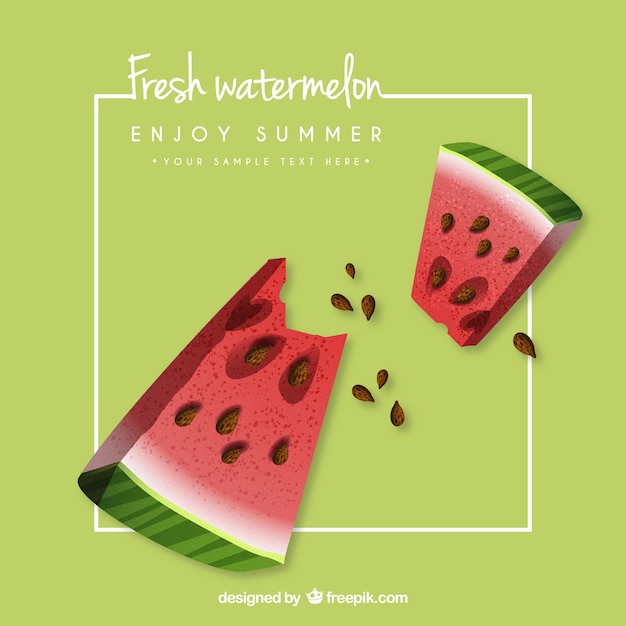Fascinating Facts about Watermelon

Watermelon is a juicy and refreshing fruit.
Watermelon is made up of about 92% water.
The largest watermelon ever grown weighed over 350 pounds!
Watermelon is a member of the gourd family.
The red flesh of watermelon gets its color from a pigment called lycopene.
Watermelon is a great source of hydration and can help quench your thirst.
It is believed that watermelons originated from Southern Africa.
Watermelon seeds can be roasted and eaten as a snack.
The rind of a watermelon is not typically consumed, but it can be pickled.
Watermelon is low in calories and fat, making it a healthy choice.
Eating watermelon can help improve digestion due to its high fiber content.
The first recorded watermelon harvest occurred nearly 5,000 years ago in Egypt.
The average watermelon contains around 300 seeds.
Watermelon is a natural diuretic and can help promote healthy kidney function.
Watermelon contains a variety of essential vitamins and minerals, such as vitamin C and potassium.
Watermelon can be enjoyed in both sweet and savory dishes.
The black seeds commonly found in watermelon are actually edible.
The scientific name for watermelon is Citrullus lanatus.
Watermelon is a symbol of summer and outdoor picnics.
The juice of watermelon can be used to make refreshing summer drinks.
Watermelon is a popular ingredient in fruit salads and sorbets.
Fascinating Facts about Watermelon part 2
Watermelon is a versatile ingredient and can be used in both sweet and savory recipes.
Watermelon is a natural source of antioxidants, which can help protect the body against free radicals.
Watermelon is high in vitamins A and B, which can promote healthy skin and hair.
Some varieties of watermelon have yellow or orange flesh instead of the typical red.
Watermelon seeds are commonly used in traditional Chinese medicine to treat various ailments.
The watermelon festival held in the town of Cordele, Georgia, is one of the largest watermelon festivals in the United States.
Watermelon is a popular fruit during the summer Olympics in Brazil, where it is often served chilled.
Watermelon is a popular ingredient in smoothies and fruit juices.
Watermelon can be sliced and grilled for a unique and delicious treat.
Watermelon is naturally low in sodium and can be consumed by individuals on a low-sodium diet.
The juice of watermelon can be used as a natural remedy for sunburn relief.
Watermelon is a refreshing snack option for hot summer days.
Watermelon is a good source of hydration for athletes and those participating in physical activities.
Watermelons are typically harvested when the tendril on the vine turns brown and dries out.
Watermelon is a great source of vitamin C, which can help boost the immune system.
Watermelon is often used as a natural remedy for constipation relief due to its high water and fiber content.
The nutritional content of watermelon can vary depending on the variety and ripeness.
The Sugar Baby variety of watermelon is known for its small size and incredibly sweet taste.
Watermelon can be used as a natural face mask to hydrate and moisturize the skin.
Watermelon contains an amino acid called citrulline, which is believed to have a positive impact on blood pressure and cardiovascular health.
Watermelon is a great source of electrolytes, making it a good choice for rehydration after physical activity.
The seeds of watermelon can be crushed and used as an ingredient in homemade bread and baked goods.
Watermelon has a high water content, making it a great choice for individuals trying to maintain a healthy weight.
Watermelon is a versatile and delicious fruit that can be enjoyed in a variety of ways.

